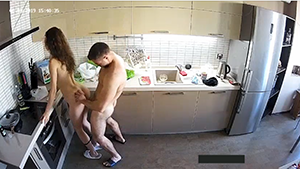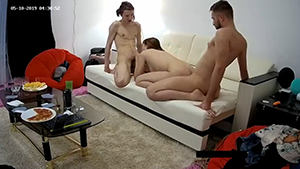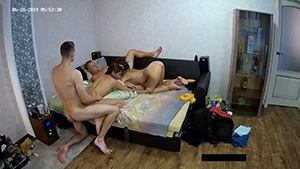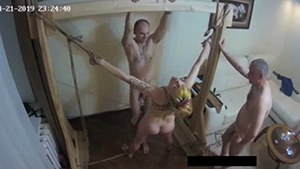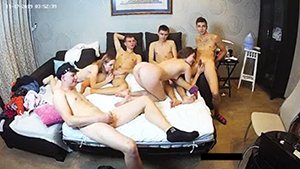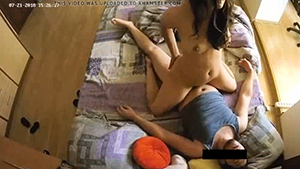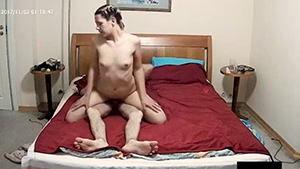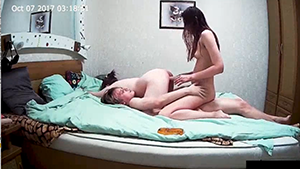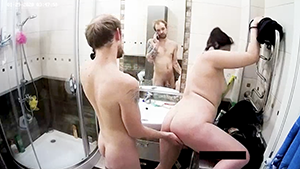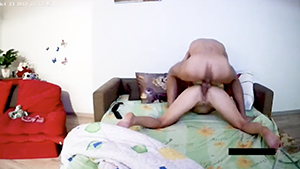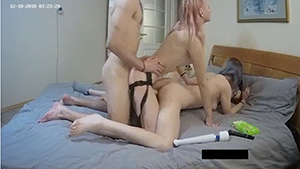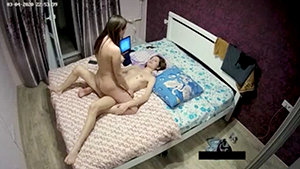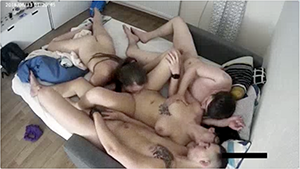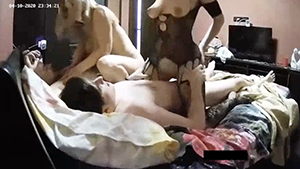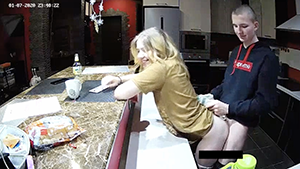Voyeur House TV: A Deep Dive into the World of Live Streaming Residences
In the ever-evolving landscape of online entertainment, the concept of voyeurism has taken a fascinating turn with the advent of platforms like Voyeur House TV. This unique genre of content involves individuals opening their homes to a live streaming audience, offering an unfiltered and continuous view into their daily lives. In this article, we will explore the origins of Voyeur House TV, its popularity, the ethical considerations surrounding it, and the impact it has on our understanding of privacy in the digital age.
Voyeur House TV: An Overview:
Voyeur House TV is a platform that showcases live streams from various residences, inviting viewers to observe the unscripted and authentic daily lives of its participants. Unlike traditional reality TV, Voyeur House TV provides a continuous and unfiltered experience, allowing viewers to tune in at any time to witness the ongoing activities of the residents.
The platform features a variety of residences, ranging from single individuals navigating their solo lives to groups of people cohabiting in shared spaces. Each residence is equipped with cameras strategically placed to capture different areas, creating a voyeuristic experience for the audience. The term "Voyeur House TV" encapsulates the essence of this phenomenon, emphasizing the role of technology in facilitating a form of digital voyeurism.
The Rise of Voyeur House TV:
The roots of Voyeur House TV can be traced back to the early days of reality television, where shows like "Big Brother" laid the foundation for the idea of cameras capturing individuals in their living spaces. However, the evolution of technology and the rise of social media have transformed this concept into a more intimate and accessible experience.
Platforms like Twitch, YouTube, and dedicated voyeur house websites have played a pivotal role in the growth of Voyeur House TV. The allure of witnessing real-life situations in real-time, without the constraints of editing or scripting, has captured the attention of a diverse audience. Viewers are drawn to the unpredictability and authenticity of the content, challenging the traditional norms of scripted entertainment.
Motivations Behind Voyeur House TV:
The motivations driving individuals to participate in Voyeur House TV are as diverse as the content itself. For some participants, the primary motivation is the pursuit of fame and attention. Opening one's home to a live audience provides a platform for individuals to showcase their personalities, talents, and daily routines in the hope of building a substantial following.
In contrast, others may be motivated by a desire for social connection. Voyeur House TV creates a unique digital community where viewers can engage with each other and with the participants in real-time. This sense of virtual togetherness offers a form of social interaction that can be particularly appealing in an increasingly digital and isolated world.
The Entertainment Appeal:
One of the key factors driving the popularity of Voyeur House TV is its entertainment value. In a media landscape saturated with highly produced and scripted content, the raw and unfiltered nature of live streaming residences provides a refreshing alternative. Viewers can experience the unexpected, from spontaneous conversations to unforeseen challenges, making each moment genuinely unpredictable.
The format also enables viewers to feel a sense of connection with the participants. By observing their unscripted reactions to daily situations, viewers often form a more intimate bond with the individuals on screen. This level of authenticity distinguishes Voyeur House TV from traditional reality television, creating a more immersive and relatable viewing experience.
Ethical Considerations:
While Voyeur House TV offers a unique form of entertainment, it raises significant ethical questions about privacy and consent. Participants willingly choose to share their lives, but the consequences of such exposure can be profound. The line between public and private life becomes blurred, and participants may find it challenging to navigate the boundaries of what is acceptable to share with the world.
Privacy concerns extend not only to the participants but also to the potential impact on those in their immediate social circles. Friends, family members, and colleagues who may appear on camera inadvertently become part of the public narrative. The implications of this exposure can strain relationships and impact the lives of individuals who did not explicitly consent to being part of the voyeuristic experience.
Legal Implications:
The legal landscape surrounding Voyeur House TV is complex and varies depending on jurisdiction. In many countries, individuals have the right to control the use of their image, and broadcasting someone without their consent may constitute a violation of privacy laws. However, participants often enter into agreements with Voyeur House TV platforms, waiving certain rights in exchange for the opportunity to share their lives with a broader audience.
Voyeur House TV platforms typically have terms of service that outline rules and guidelines for participants. These agreements aim to balance the rights of individuals with the operational needs of the platform. Despite these efforts, legal challenges and debates about the limits of consent in the digital age persist.
Impact on Social Dynamics:
The rise of Voyeur House TV has notable implications for social dynamics in both positive and negative ways. On the positive side, the platform fosters a sense of community among viewers who share common interests or identify with the experiences of the residents. The ability to interact with participants through comments and live chats creates a unique form of engagement, blurring the lines between content creators and their audience.
However, the constant scrutiny and potential for judgment from viewers can lead to performative behavior among participants. Living under the gaze of thousands or even millions of viewers may influence individuals to alter their behavior to cater to the expectations of their audience. This dynamic raises questions about authenticity and the impact of external validation on one's sense of self.
Privacy in the Digital Era:
Voyeur House TV represents a microcosm of the broader conversation about privacy in the digital era. As individuals willingly share more aspects of their lives online, the concept of personal boundaries becomes increasingly complex. The right to privacy is a fundamental human right, yet the allure of online attention and the potential for financial gain sometimes prompt individuals to relinquish aspects of their private lives.
The debate surrounding Voyeur House TV is part of a larger conversation about the balance between personal freedom and the responsibility to protect individuals from harm. Striking this balance requires a nuanced understanding of the impact of technology on our lives and the ethical considerations that come with the evolving landscape of online content creation.
Navigating Authenticity and Performative Behavior:
One of the challenges presented by Voyeur House TV is the fine line between authenticity and performative behavior. While the allure of raw and unfiltered content is a key driver of the platform's popularity, participants may face the pressure to entertain and maintain viewer engagement. This pressure can lead to a delicate dance between being genuine and catering to the expectations of the audience.
Participants in Voyeur House TV may grapple with the need to balance their desire for privacy with the demands of creating entertaining content. The risk of performative behavior arises as individuals navigate the challenge of living authentically while also meeting the expectations of a live audience. Striking this balance becomes crucial for both participants' well-being and the sustainability of the platform.
The Impact on Mental Health:
Living under constant surveillance, even in the digital realm, can have profound implications for the mental health of Voyeur House TV participants. The pressure to entertain, maintain viewer interest, and navigate the challenges of a publicized personal life can contribute to heightened stress and anxiety. The potential for online harassment and invasion of privacy adds an additional layer of complexity to the emotional toll participants may experience.
The mental health impact extends beyond the participants themselves to those in their immediate social circles. Friends, family, and colleagues who may be inadvertently

